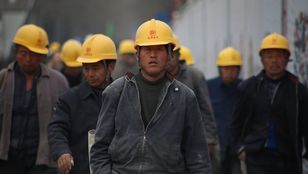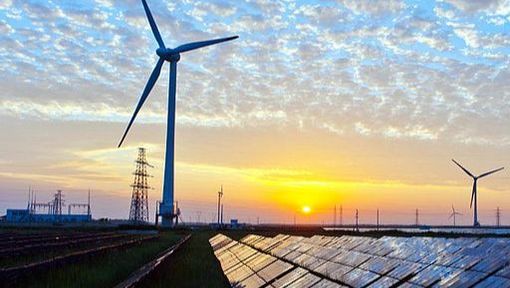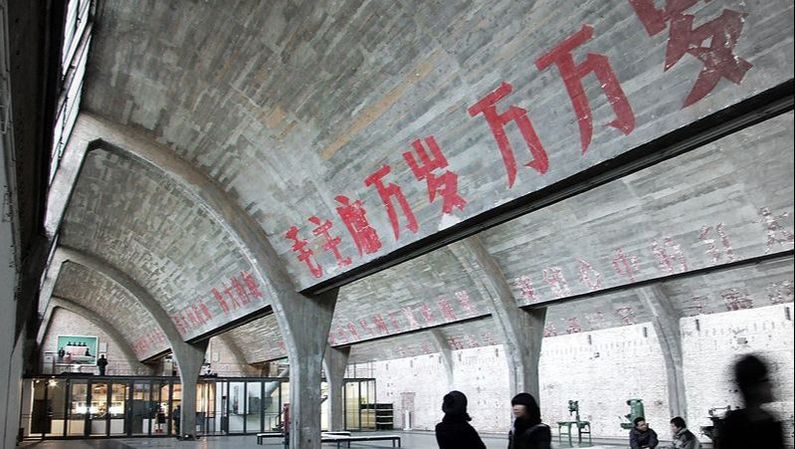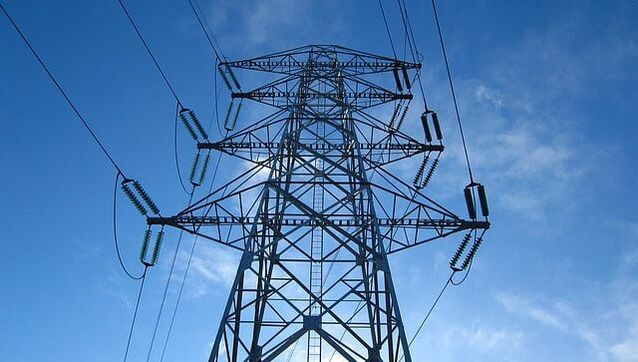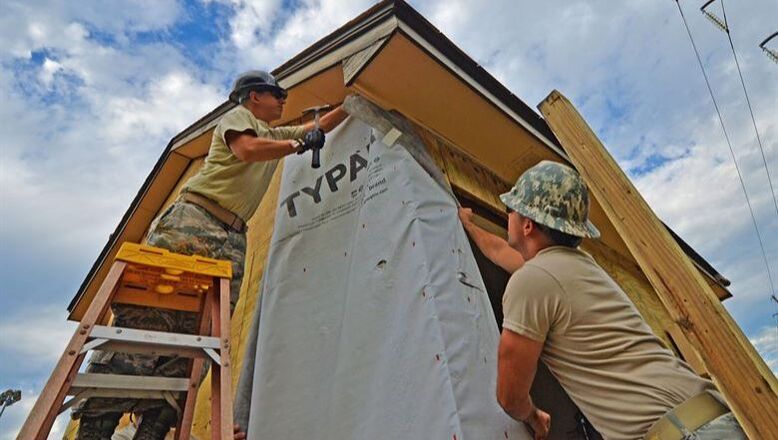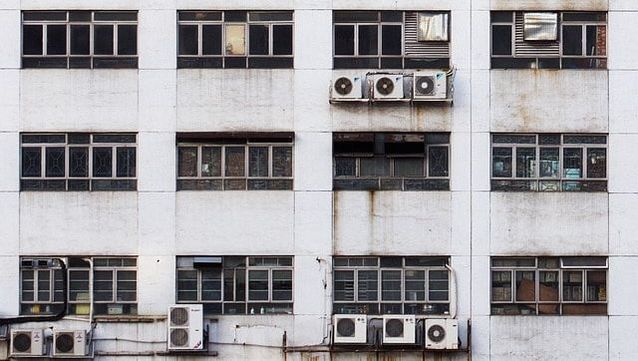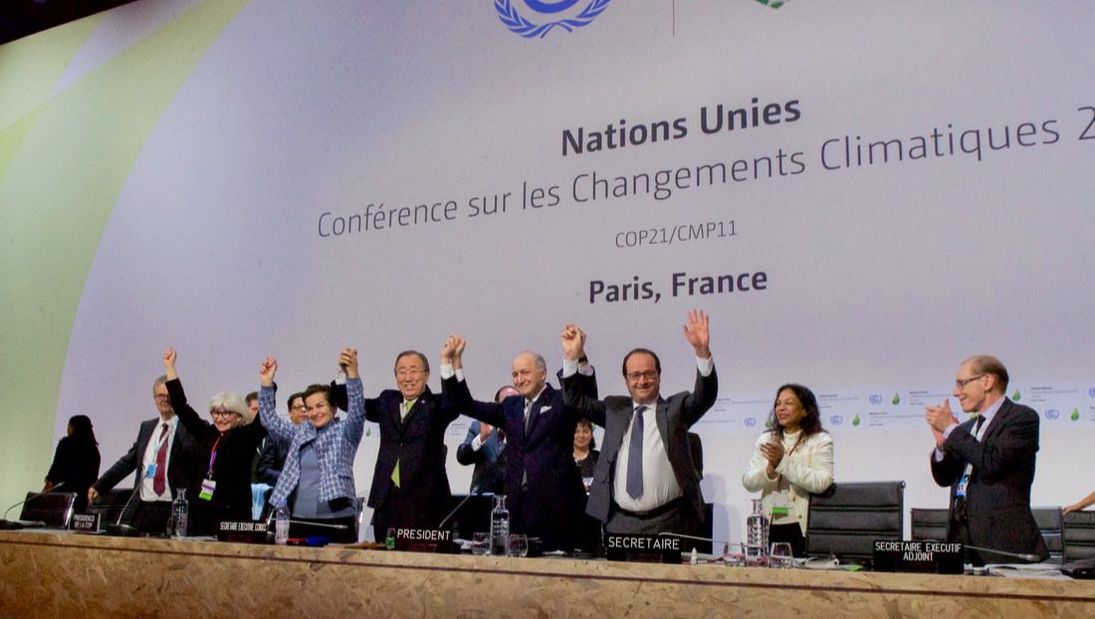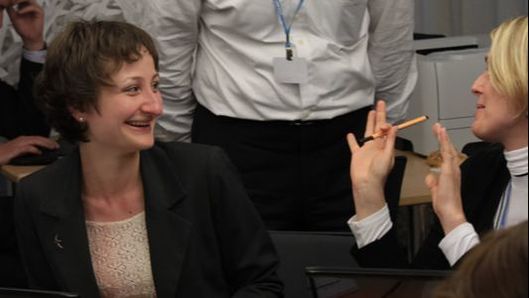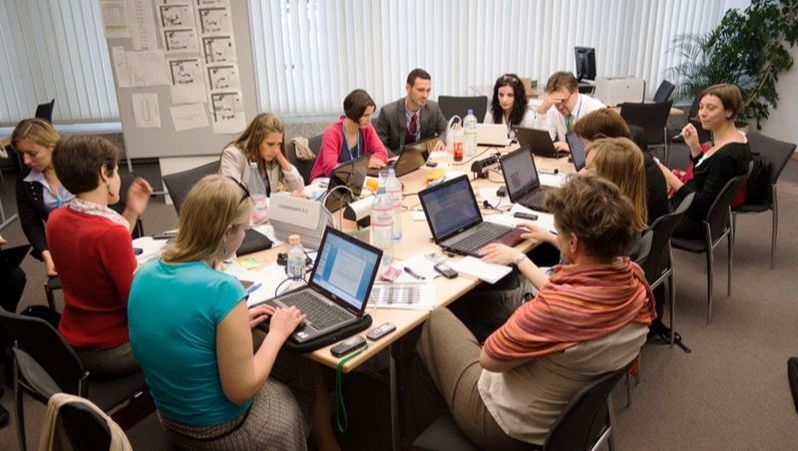Emission trading systems
The team members of Klimapolitika have a solid experience in emissions trading. We were in charge of setting up of the EU ETS in Hungary and and the preparation of Hungary's National Allocation Plans in 2005-07 and 2008-12. One member of our team also worked on EU ETS for the European Commission's DG Climate Action, specializing in National Allocation Plan evaluation and registry systems. Klimapolitika team members have worked as consultants on the development of emissions trading in China and Kazakhstan and have also participated in preparing Moldova and Western Balkans countries for adopting the EU ETS.
|
Installation-level ETS services
Through our partners at Interzona Climate Change Advisory, Klimapolitika offers consultancy services for EUETS installations: - power plants from small gas motors to fossil fuel giants with emissions of 5 million t CO2 per annum; - district heating plants; - various manufacturing installations. |
Klimapolitika supporting China’s capacity building in ETS registries
As part of Norway's capacity building support to China's development of climate policies, our expert Istvan Bart supported several initiatives (conferences and bilateral capacity building events) aimed at developing provincial and national emissions trading registry systems in China. |
Registries training in the EU - Korea ETS project
The EU-Korea ETS project supports the implementation and operation of the Korean Emissions Trading System (KETS), with technical assistance. István Bart from Klimapolitika is providing training on registries. The project is funded under the EU’s Partnership Instrument. |
Low carbon scenarios
Klimapolitika team members have worked on developing low carbon scenarios at the national and local level, and have expertise in developing national and local strategies and modelling of low carbon scenarios. We have been involved in developing a national climate change strategy for Hungary, with an emissions outlook until 2050, in the analytical work of the Intended Nationally Determined Contributions (INDCs) for Albania and Montenegro and have worked on developing low carbon development scenarios for 4 countries in the Western Balkans. We have provided trainings on long-term energy modelling for officials in 7 countries in the Western Balkans and Turkey. We have also developed municipality level sustainable energy strategies in Hungary. One of our team members is a contributing author to Chapter 6 ‘Assessing Transformation Pathways’ of the IPCC 5AR WG3.
|
Modelling greenhouse gas emission reduction pathways for Albania
Klimapolitika worked together with the Regional Centre for Energy Policy Research (REKK) on modelling greenhouse gas emission pathways for Albania, using the TIMES model. The project was funded by the Hungarian government: with this project, Hungary wished to fulfil part of its international climate financing obligations under the UNFCCC and its Kyoto Protocol. South East Europe Energy Transition Dialogue
Klimapolitika is working together with Agora Energiewende and think tank partners in South East Europe on improving the regulatory environment for the energy transition and creating a strengthened network of energy policy think tanks. Klimapolitika has mapped myths and facts related to renewable energy deployment in the SEE region. Estimating Long-term GHG Emission Pathways for Hungary
Klimapolitika worked on projections of greenhouse gas emissions for Hungary for the period 2030-2050 for the Climate Change Action Plan of the National Climate Change Strategy. |
Analysing Hungary's Long-Term Strategy
EU Member States are required to develop national long-term strategies on how they plan to achieve the greenhouse gas emissions reductions needed to meet their commitments under the Paris Agreement and EU objectives. Klimapolitika was responsible for assessing the Long-Term Strategy (LTS) of Hungary as a subcontractor of Ricardo Energy & Environment. Low carbon development strategy for Montenegro
Klimapolitika is supporting Montenegro in developing a national system for projections and policies and measures. We are also developing low emission scenarios for the electricity, industry and residential buildings sectors until 2050. |
Working on the background analysis for the Hungarian National Energy and Climate Plan
Klimapolitika prepared energy and GHG emission projections for the buildings sector using bottom-up energy modelling in TIMES. The analysis served as the basis for the Hungarian National Energy and Climate Plan. Klimapolitika worked on the project in cooperation with the Regional Centre for Energy Policy Research (REKK). Analysing best practice cases in Hungary's climate policies
Klimapolitika contributed to the Hungarian sections of the CEE Climate Policy Frontier project, which is aimed at exploring the stories behind the most successful climate actions carried out in CEE Member States. The project is funded by EUKI and coordinated by Climate Strategies, Wise Europa, Climate Analytics and Expert Forum |
Adaptation
Several of our team members have been involved in developing guidelines for municipal level adaptation in Hungary, and providing trainings to more than 140 local officials in 7 regions of the country. We have also worked with some municipalities to assess their vulnerability to climate change. We have contributed to the Integrated Water Resource Management Strategy for Albania with a focus on climate change impacts, vulnerabilities and adaptation options; and conducted research on farm-level impacts of climate change in agriculture and forestry and possible adaptation measures in 20 countries of Europe and Central Asia as a contribution to a project of FAO. We are currently developing a guidance document on mainstreaming adaptation into EU-funded infrastructure projects in Hungary.
|
Revising Hungary's Climate Change Strategy
Klimapolitika supported the revision of Hungary's 2008 Climate Change Strategy on request of Hungary's National Adaptation Centre. |
Handbook and methodology for climate proofing EU funded projects
Klimapolitika prepared a handbook and a detailed methodology for climate proofing EU funded projects, to be used by the beneficiaries of projects. The guidebook adds further methodological elements as well as information on climate change in Hungary to guidance published by the European Commission, |
Capacity building
All team members have experience related to setting up the national legal and institutional framework for climate change in Hungary. Some of us have also worked on implementing similar schemes in other countries, including support for setting up an emissions trading scheme, and setting up the legislative and institutional framework for F-gases and Ozone Depleting Substances in Moldova. We have also worked on strengthening institutional capacity in the Western Balkans and Turkey in the areas of emission trading systems, monitoring and reporting, CCS, fuel quality and road transport.
|
Mapping the Hungarian system for monitoring and feedback on climate and energy policies and measures
The Swedish Environmental Protection Agency (SEPA) is supporting Hungary in addressing the challenges the country faces in the field of monitoring climate and energy policies and measures. Klimapolitika helped the SEPA by preparing the situation analysis of the current national monitoring methodologies and practices in Hungary, and identifying some gaps in the system. |
Designing an ETS Competent Authority for Moldova
As part of EuropeAid's CLIMA-East Programme, the project supported Moldova with designing an emissions trading competent authority, which is a requirement under Moldova's EU Association Agreement. We analysed various options for setting up the Authority, prepared recommendations and estimated the costs of its establishment and operation. The results were presented to the government in a report. |
Designing an ETS Competent Authority for Ukraine
As part of EuropeAid's CLIMA-East Programme, the project supported Ukraine with designing an emissions trading competent authority, which is a requirement under Ukraine's EU Association Agreement. We analysed various options for setting up the Authority, prepared recommendations and estimated the costs of its establishment and operation. The results were presented to the government in a report.. |
|
Supporting Moldova in transposing EU climate acquis in emissions trading and F-gases and ozone-depleting substances
As part of EuropeAid's ClimaEast project, Klimapolitika assisted the government of Moldova in assessing the domestic legislative and administrative requirements and feasibility of laying the groundwork for emissions trading. The assistance involved the drafting of a report and the production of a roadmap for implementation. In 2016, this work was extended to F-Gases and Ozone Depleting Substances legislation. |
|
Climate diplomacy
Our team members have a record of participating in international climate negotiations since 2000. Most of our experts have been members of EU Presidency climate teams; namely, we implemented the Hungarian Presidency and supported the Presidencies of Cyprus, Lithuania and Greece. We undertook advisory and coordinating responsibilities in the field of international climate policy, which consisted of internal position development within the EU and negotiations at international level, including but not limited to UNFCCC sessions. We specifically supported the work on the EU 2030 climate and energy framework, mitigation, international climate financing, flexible mechanisms, adaptation and negotiations on several technical issues. One of our experts acted as vice-chair of the SBI of the UNFCCC between February 2006 and December 2007.
|
Klimapolitika experts supported the EU Presidency's climate team for the 4th time
The Hellenic government contracted three of Klimapolitika’s experts to assist its international climate policy team during the country’s Presidency of the Council of the European Union in the first semester of 2014. They provided support for the Greek Presidency team in preparing for and participating in UNFCCC sessions, including the coordination of several EU expert groups and negotiation teams as well as outreach activities. |
Klimapolitika supported Lithuania’s 2013 EU Presidency climate team
Klimapolitika's experts were contracted by the Lithuanian government to assist its international climate policy team during the country’s Presidency of the Council of the European Union between July and December 2013. The team has gained the unique track record of having supported three international climate negotiating teams for EU Presidencies. (Hungary in 2011, Cyprus in 2012, and Lithuania in 2013) . The team provided assistance in planning, organising and chairing expert groups prior to negotiation sessions and the harmonisation of the EU's diplomatic efforts during negotiations. |
Climate finance
Several of our team members contributed to developing a Green Investment Scheme in Hungary using the revenues from sales of AAUs for energy efficiency investments in buildings. We have worked on mainstreaming climate change mitigation and adaptation into EU regional funding at the EU and national level, as well as assessing the role of the EU Solidarity Fund in the context of financing and managing the increasing natural disaster risks in the European Union. One of our team members has researched the link between risk financing instruments, especially insurance mechanisms, and disaster risk reduction (and climate change adaptation).
|
Klimapolitika is supporting COWI in mainstreaming of climate change into ESIF Partnership Agreements and Operational Programmes
Klimapolitika supported COWI in assessing the integration of climate change into Partnership Agreements and Operational Programmes submitted by member states to the European Commission for the 2014-2020 MFF, by quality checking the reports prepared by COWI experts. |



